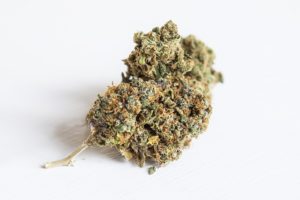Marijuana slows reaction times, negatively affects coordination, and causes sleepiness. These are all effects that greatly impact driving.
Marijuana Overview
Marijuana is widely known around the world. It comes from the Cannabis sativa plant and contains THC (tetrahydrocannabinol) and other compounds. THC is what causes some of the changes a person experiences as they get high.
The Drug Is Known to Cause Pleasurable Sensations When Smoked or Eaten, Such As:
- Mood changes
- Altered senses
- Changes in the perception of time
- Loss of coordination
- Reduced ability to solve problems
The National Institute on Drug Abuse (NIDA) reports that marijuana is commonly smoked via:
- Joints (hand-rolled cigarettes)
- Blunts (cigars that have been filled with marijuana)
- Bongs and pipes (water pipes)
Mixing marijuana oil into food (edibles) is another common method of consumption.
Vaporizers are also becoming popular with marijuana users because they are thought to prevent the inhalation of smoke. Some users also brew it as a tea.
As stated by the NIDA, marijuana was the most frequently used illicit substance in 2015. States have been changing their marijuana laws in response to public demand and scientific findings.
On November 2018, NBC News reported that recreational marijuana was legal in 10 states and Washington, D.C. Medical marijuana is legal in 33 states.
This has forced jurisdictions to educate drivers about the possible legal and health consequences of driving under the influence of marijuana.
Medicinal Use

Though marijuana is a popular recreational drug, many people use it as medicine.
The U.S. Food and Drug Administration (FDA) has not yet approved marijuana as medication, but it has approved medication based off some of its extracts, as mentioned by NIDA.
Using marijuana for a legitimate health issue does not mean that people will be OK to drive after using it. Below is some scientific data that explains why.
How Marijuana Affects The Brain
Driving requires a person to pay attention to their surroundings, laws, traffic, and other events that may surprise a driver. On June 2018, NIDA mentioned that marijuana is often found in the blood of people who have been responsible for car crashes.
This is because THC, the active ingredient in marijuana, can affect a person’s coordination and reasoning in various ways.
- Delayed reaction times: AAA reports that marijuana can cause impairments between two to four hours after it has been smoked. This means a person may react more slowly to stimuli, making them more likely to cause a crash or accident
- Loss of coordination: Coordination is impaired during marijuana use. The drug tends to have a greater effect on “automated” driving rather than driving that requires the driver to focus more. Loss of coordination may cause a person to judge space and time incorrectly
- Sleepiness: Marijuana can make you drowsy. This could make it easier to become distracted or make it hard for drivers to read road signs
- Changes in memory: Marijuana makes it harder to remember new information. If a driver recently saw an important warning, they may forget about it as they continue toward their destination, making a car crash more likely.
These effects occur because THC causes a person to become more relaxed. Smoking marijuana releases THC into the bloodstream faster, but eating items with THC makes its effects last longer.
NIDA Reports That THC Could Also Cause a Person to Feel the Following Unintended Effects:
- Paranoia
- Anxiety
- Delusions
- Hallucinations
- Psychosis
Smoking and eating marijuana are common, but people are also beginning to use more marijuana extracts that cause more THC to be released into the blood. This is referred to as dabbing. Some resins and extracts are:
- Shatter. This is solid and amber in color.
- Honey oil or hash oil. This is a sticky liquid.
- Budder or wax. This resembles the texture of lip gloss or balm.
If you have never smoked marijuana before, it could have more of an effect on you than on an experienced user. This is especially the case if using extracts with high concentrations of THC.
Risk Factors for Impaired Driving After Use

As reported by NIDA, some strains of marijuana are becoming stronger, thanks to different growing practices. If you are used to taking marijuana, this may be of less risk to you.
New marijuana users may be unprepared for the higher dose of THC contained in these stronger strains, putting them more at risk if they decide to drive.
The U.S. Centers for Disease Control and Prevention (CDC) also mention that drinking alcohol along with marijuana increases the risks of causing an accident because of impaired driving.
- In 11 percent of instances, drivers killed in car accidents have drugs or alcohol in their system.
- Men in their late teens and early 20s are more likely to be at risk of being a car accident because of marijuana use.
- The CDC reports that 7,000 new users take marijuana every day, according to data from 2014.
- After alcohol, marijuana is the most common drug people use before a car accident, per the CDC.
AAA reports a few other things about driving and marijuana use.
- THC can be found in the blood for a few days after a person has used marijuana.
- Drivers tend to be more accurate about their assessment of how well they can or cannot drive under the influence of marijuana, but driving under the influence of any drug that impairs coordination is dangerous.
- It is difficult to accurately know how much marijuana is in a person’s system at the time of an accident because there are no portable tests similar to breathalyzers, which are used to test for alcohol consumption.
- Tolerance to marijuana does reduce some of the risk of psychological impairments caused by marijuana.
A Final Word
Scientific research makes it clear that driving after ingesting marijuana is not a good idea. Almost every skill needed to be a safe driver diminishes after taking it.
In addition to health consequences, drivers who use marijuana on an occasional or regular basis should learn more about local laws, which may vary.
In January 2019, Massachusetts residents were cautioned that they should be aware of the hazards and legal consequences of driving under the influence of marijuana.
Boston Explained That State and Local Police Currently Undertake the Following Methods to Make Sure Drivers Can Remain Safe behind the Wheel:
- Police are constantly on the lookout for people who may be impaired and may decide to stop them.
- Breathalyzers for marijuana use do not exist, so officers may ask drivers to perform tasks, such as walking on one foot or following a straight line and gauging their ability to turn around.
- The priority for police is to remove impaired drivers from the road regardless of the substance used.
Though this may vary depending on local laws, the key thing to remember is that driving under marijuana’s influence can have serious consequences.
People should not drive if they decide to consume the drug.

